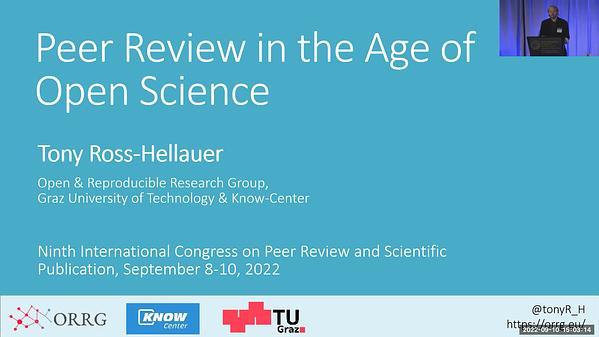Would you like to see your presentation here, made available to a global audience of researchers?
Add your own presentation or have us affordably record your next conference.
keywords:
reproducible research
reporting guidelines
bias
Objective The Standards for Reporting of Diagnostic Accuracy (STARD) reporting guideline for studies to evaluate the diagnostic accuracy studies of medical tests was published in 2003. The STARD reporting guideline was developed to “improve the accuracy and completeness of reporting ... to allow readers to assess the potential for bias in the study and to evaluate its generalisability.” An update of the reporting guideline appeared in 2015. The STARD executive team has started making preparations for another update. In doing so, the aim was to explore whether other recent reporting guidelines emphasized other guiding principles, beyond internal validity (risk of bias) and external validity (applicability). Such principles could be concerns about conflicts of interest, or equity, or diversity.
Design Based on a search of the published literature and the EQUATOR network, a convenience sample of 24 reporting guidelines was assembled. Explicitly mentioned guiding principles were extracted and scrutinized in these reporting guidelines to identify other reasons for including or emphasizing specific elements in study reports. Using an inductive approach, these principles and arguments were organized into a smaller number of categories.
Results Although the Consolidated Standards of Reporting Trials (CONSORT) reporting guideline and other early reporting guidelines have always emphasized the need for methodologic rigor, reporting guidelines are, and have always been, based on a range of principles, including more than internal validity and risk of bias. These principles include, but are not limited to, the following factors: identifiability in literature searches, clarity, integrity (competing interests and sources of funding), open science (accessibility), and general scientific principles (prior literature, hypotheses, limitations). More recent guidelines include additional considerations, such as ethics, equity and fairness, sex and gender considerations, reducing research waste, and curbing selective reporting and spin in reporting and interpretation.
Conclusions Reporting guidelines are based on a growing range of guiding principles. This situation poses challenges to groups interested in developing or updating a reporting guideline, who will have to balance completeness and complexity, presenting specific items or including generic ones, and, sometimes, deciding on being complete versus being helpful, for authors, reviewers, and editors.
Conflict of Interest Disclosures All authors contributed to the development of STARD 2015. Patrick M. Bossuyt is a member of the Peer Review Congress advisory board but was not involved in the review or decision of this abstract.


